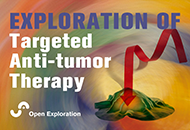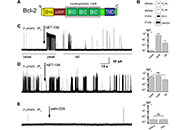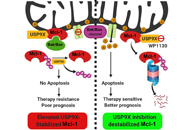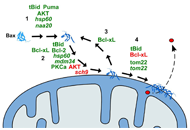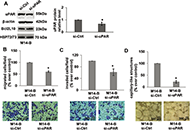
The Role of Bcl-2 Family Proteins in Cancer Progression and Their Relevance to Cancer Therapy
Guest Editors
Dr. Donatella Del Bufalo E-Mail
Senior investigator, Preclinical Models and New Therapeutic Agents Unit, Translational Research Functional Departmental Area, Regina Elena National Cancer Institute, Rome, Italy
Research Keywords: melanoma; angiogenesis; bcl-2 family; tumor progression; target therapy
Dr. Germain Gillet E-Mail
Hospices Civils de Lyon, Laboratoire d'Anatomie et Cytologie Pathologiques, Centre Hospitalier Lyon Sud, Pierre Bénite, France; Université de Lyon, Centre de recherche en cancérologie de Lyon, U1052 INSERM, UMR CNRS 5286, Université Lyon I, Centre Léon Bérard, Lyon, France
About the Special lssue
The Bcl-2 family is composed of several structurally related proteins with different, and in some cases opposing, functions. Even if this family plays a pivotal role in the intrinsic apoptotic response and consequently, cell and tissue homeostasis, it also shows a plethora of non-canonical functions, irrespective of apoptosis, both in normal and cancer cells. Studies performed in cellular and animal models as well as using patient samples demonstrated that these functions, not confined to cell death control, encompass the regulation of cell cycle, cell differentiation, cell metabolism, calcium trafficking, and neuronal development. In cancer, the Bcl-2 family has been found to regulate tumorigenesis, cell migration, invasion, and metastasis, as well as epithelial-mesenchymal transition. While alterations in the expression levels of the Bcl-2 family proteins have been correlated with tumor progression, resistance to chemo- and/or radio-therapy, and poor clinical outcomes, over the last few decades considerable effort has been made to discover the molecular mechanism of the Bcl-2 family members, and target specific antiapoptotic members of this family for cancer therapy. These efforts lead to the development and the approval for the treatment of several hematological malignancies of ABT-199 (Venetoclax), a specific inhibitor of Bcl-2, the founding member of this growing family.
The aim of this special issue is to highlight the role of the multifaceted Bcl-2 family members in tumor progression, and to describe recent advances regarding their involvement in cancer therapy.
Keywords: Bcl-2 family; cancer; cancer therapy; tumor progression
Published Articles
